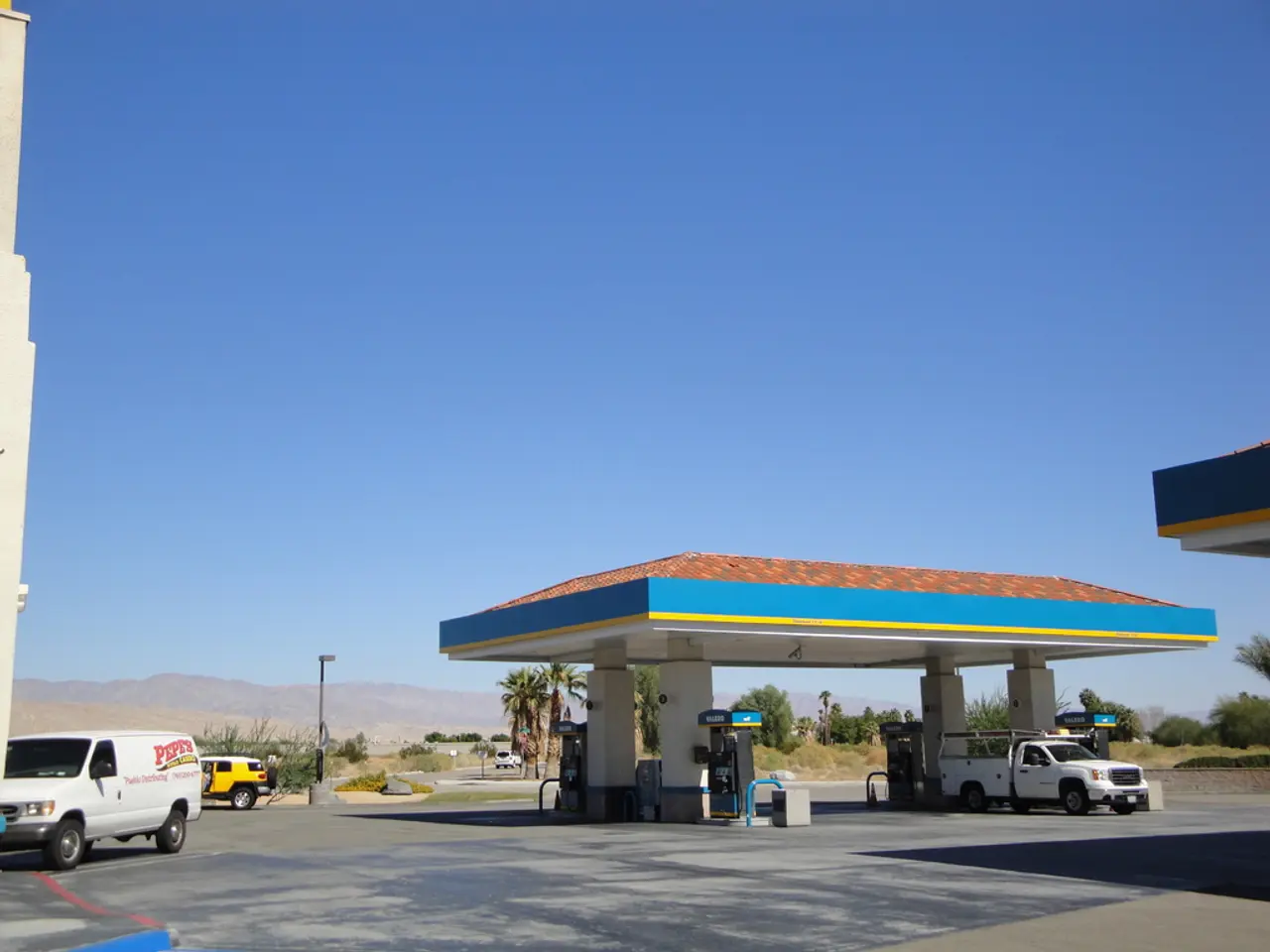Fuel Prices Spike Again: Here's Where to Save Amidst Middle East Crisis
Efficient data analysis showcases substantial savings possibilities at fuel stations in real-time.
Get the latest on rising gasoline and diesel prices, as the tension between Israel and Iran escalates. Understand the impact on fuel prices, and discover regional differences and the best times to fill up your tank.
Over the Memorial Day weekend, travelers enjoyed a temporary respite from escalating gasoline and diesel prices. However, the situation has taken a turn for the worse with the recent conflict between Israel and Iran. In just a week, the average prices for diesel at German gas stations saw a steep increase of 4.5%, while gasoline prices went up by a more moderate 2.4% (E10). This comes from real-time data from the Federal Cartel Office that ntv.de continuously monitors and visualizes.
As of June 12, a liter of Super gasoline (E10) was priced at an average of 1.66 euros, while Super E5 was available for an average of 1.72 euros. Diesel, on the other hand, was being sold for an average of 1.54 euros per liter. This represents the lowest prices of the year, but these figures rose on the following day, as the Israeli military launched attacks on Iranian targets, leading to a retaliation from Iran. At present, there's no sign of de-escalation.
The crisis in the Middle East has undeniably impacted global oil prices. The main concern lies with the possibility of the Strait of Hormuz, one of the most important trade routes between the West and oil-producing nations, being blocked.
The developing tension in the Middle East can already be felt at gas stations across the country, albeit indirectly. The table below illustrates the current liter prices for Super gasoline or diesel, derived from data collected from more than 14,000 gas stations nationwide.
Diesel Prices on the Rise: Why is that?
The quick response of gas prices to the turmoil in the Middle East indicates that traders are already anticipating future developments. Even the mere possibility of strife on the world market is causing demand and prices to rise. Unfortunately, consumers find themselves powerless to protect themselves against this.
ADAC experts explained to ntv.de that "diesel is always more sensitive and reacts more strongly to geopolitical tensions and market fluctuations because, viewed globally and including industry, it is a more heavily traded product than gasoline." In Germany, a larger proportion of diesel is obtained from specific refineries, making it more susceptible to potential supply shortages. A blockade of the Strait of Hormuz would have a "severe impact" on European diesel imports.
Unveiling the Savings Potential
Even during times of rising gasoline prices, there is still a savings potential. Using price comparison apps, drivers can find the cheapest gas stations near them. These apps, like ntv.de, usually use data from the market transparency office of the Federal Cartel Office to create charts and reflect the current fuel prices at German gas stations in near real-time.
A regional breakdown of the data reveals significant price differences in counties and states. For instance, gasoline and diesel often cost more in the new states than in the rest of the country. However, some parts of Bavaria also face above-average fuel costs, particularly in rural areas with poor public transportation, where residents rely heavily on their cars and travel longer distances. Additionally, there's a savings potential evident when examining price trends throughout the day. Fuel prices typically peak in the morning and decrease in the evening. By planning your trip to the gas station accordingly, you could save an average of around 13 cents per liter.
Despite recent oil price fluctuations, the ADAC considers the current gasoline price increases as "moderate." Compared to the 2022 energy crisis, triggered by Russia's invasion of Ukraine, gasoline prices in 2025 seem favorable. However, it's clear that Germany's heavy reliance on fossil fuels for transportation poses a significant burden and risk for private households. Energy and mobility costs can surge rapidly, leaving consumers with few alternatives. Even a tax-funded "tank discount," introduced in summer 2022, offers little relief in times of war and crisis.
Consumers can utilize price comparison apps to find the cheapest gas stations and potentially save money on fuel, as these apps often use data from the Federal Cartel Office's market transparency office to reflect real-time prices. However, the current tensions in the Middle East can indirectly impact gas station prices in Germany, particularly for diesel, as it is a heavily traded product and a larger proportion of diesel is obtained from specific refineries, making it more susceptible to potential supply shortages.







